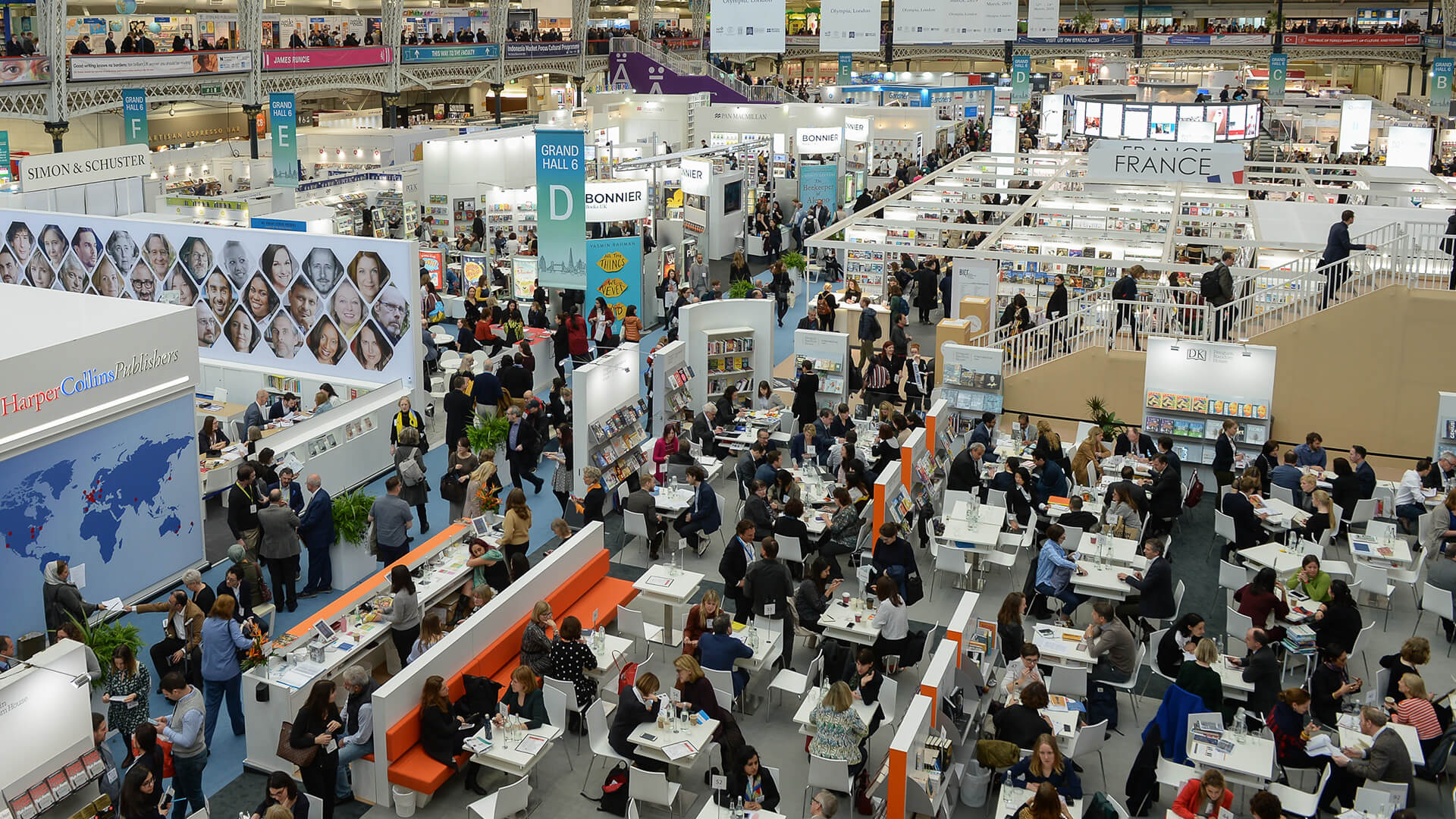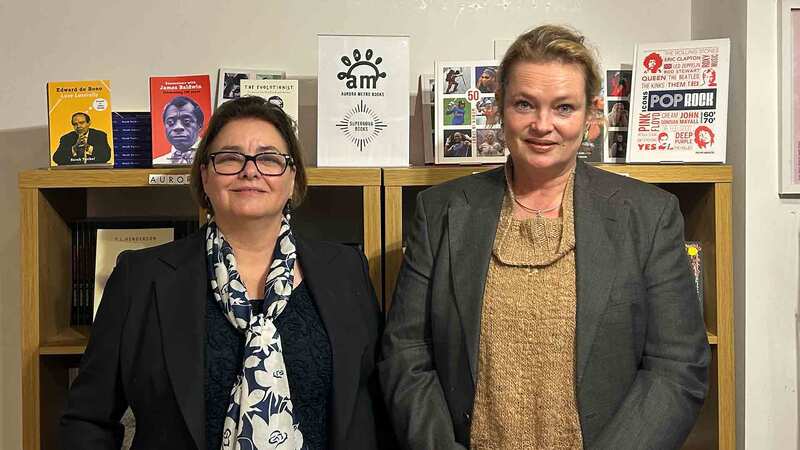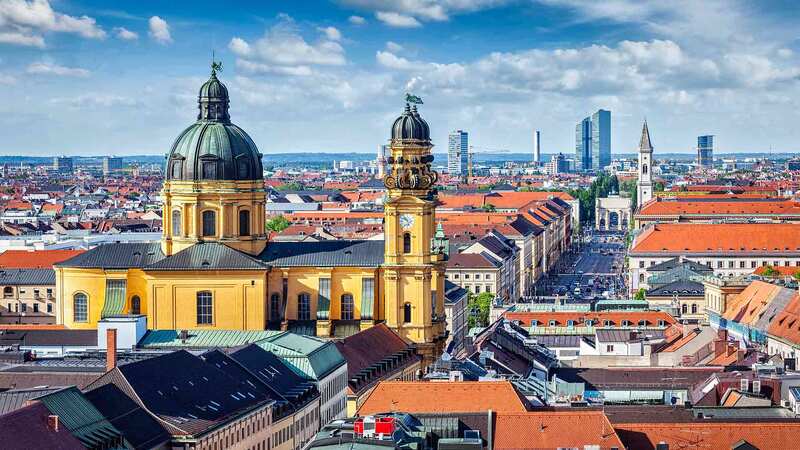You are viewing your 1 free article this month. Login to read more articles.
London Book Fair: Olympia set to host its first Covid-era fair
West London’s Olympia will shortly throw open its doors to host the first physical London Book Fair since the pandemic hit, and while visitor and exhibitor numbers are encouraging, the fair has been reshaped since its 2019 iteration.

Tom Tivnan is the managing editor of The Bookseller.
For many regular London Book Fair-goers, the moment that showed the event was truly back on was when the party invites started trickling in. Oh sure, LBF itself had long announced its 2022 dates, but we had been here before over the pandemic and there was still a bit of lingering doubt until relatively recently as to whether enough international players—particularly the North Americans—would make the trek. The British government’s relaxation of the Covid restrictions counterintuitively disincentivised some, although it seemed like a switch was thrown in early February and those who were dithering about attending decided to bite the bullet and commit to London.
Alas, there are no Ukrainian exhibitors this year but a perspective on the conflict might be gleaned by strolling the aisles of Olympia and talking to publishers from nearby nations
There are now 860 exhibitors scheduled to be at LBF 2022, a little more than half of whom are from abroad. The pre-pandemic fairs were just a smidge over 1,000 exhibitors but all in all, director Andy Ventris is probably pleased with the level achieved in what will be his first physical LBF. With this critical mass established, comms and PR folk then had to whip into gear to get parties that usually take months to plan organised in a matter of days.
I don’t mean to be frivolous writing about the more social side of LBF. There is serious business to be done at these fairs but, as United Agents’ new head of books Jodie Hodges points out (see pp04–05), these parties, though they can seem unnecessary to those outside (and maybe those who deal with editors’ and agents’ expense accounts), do serve a purpose as being points in the year to concentrate the trade’s mind and celebrate books and authors.
However, the spectre of Ukraine, and the lack of Russian exhibitors, makes this LBF return a far more sober affair than it would otherwise be. Setting aside the horrific toll on the people of Ukraine, the war is deeply concerning for the international trade as it undoubtedly will lead to a downturn in the books market across Eastern and Central Europe and more strain on the world’s creaking supply chain in a region which is crucial for printing and paper production.
Alas, there are no Ukrainian exhibitors this year but a perspective on the conflict might be gleaned by strolling the aisles of Olympia and talking to publishers from nearby nations. Poland and the Baltics were the LBF Market Focuses in 2017 and 2018 respectively and I went out to those countries to conduct interviews with the great and the good of their book trades. Several times on each trip, Russia and its expansionism—and even an expectation of eventual invasion—was brought up. At the time, I confess I did not give it much credence and thought it might be a form of internalised collective trauma of the Soviet occupation. While attacking a Nato or EU nation perhaps remains a remote possibility, it is no longer unthinkable.
Yes, these fairs are about parties and selling rights in as many territories as possible. But without being too Pollyannaish, they are also about crossing cultures and creating understanding between nations. Here’s hoping LBF 2022 can help a little with that.














